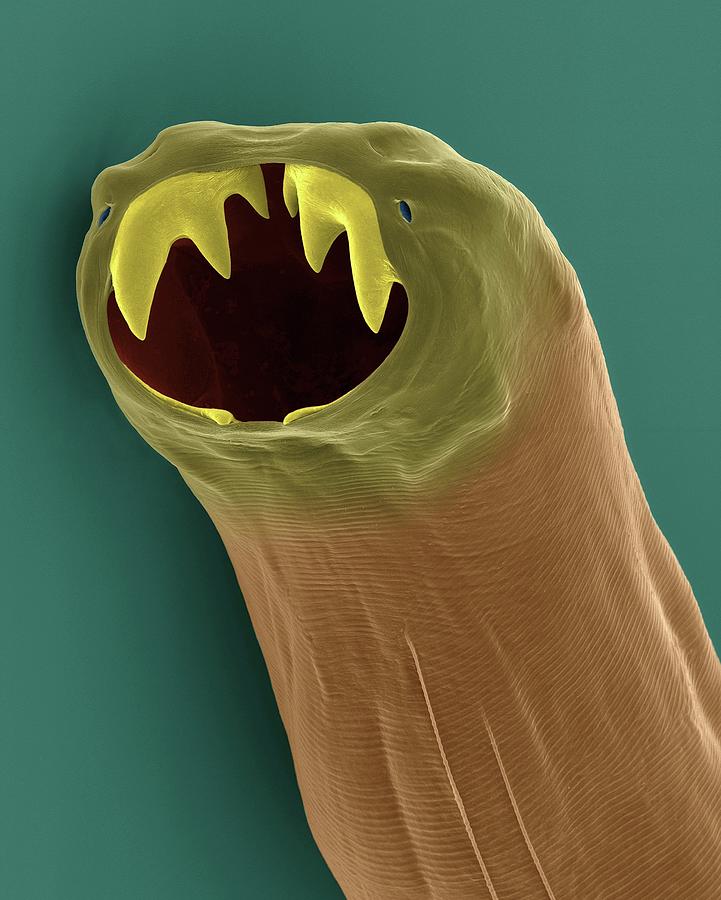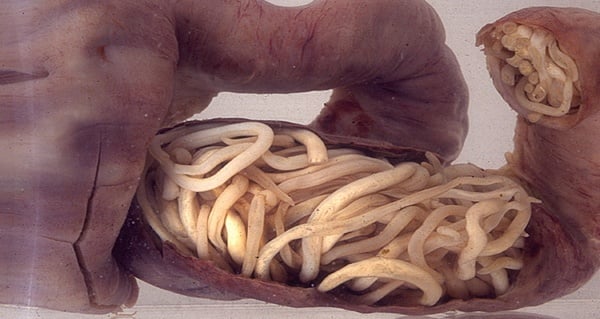


Often acquired by puppies, this condition poses a serious threat to the health of juvenile dogs if left untreated.
#HOOK WORMS SKIN#
Hookworms are parasitic nematodes colonizing the skin and digestive tract of dogs. See the veterinarian immediately if your puppy presents with these signs, or you suspect your adult dog has acquired hookworms. Hookworms are the second most common human worms (the most common is Ascaris lumbricoides ). Some common names for hookworm infections are: ancylostomiasis, necatoriasis, Egyptian chlorosis, tunnel disease, miners' anemia and brickmaker's anemia. Evidence of hookworm infection in young dogs can include anemia, tarry stools, weakness, and weight loss. Hookworms are bloodsucking roundworms living in the small intestine. However, these dogs often pass the worms on to puppies, who are more seriously affected. Adult dogs may harbor worms without any symptoms, as their fully developed immune system can suppress the parasites to the degree that they are unable to cause clinical harm. Due to their highly mobile nature, they can burrow through nearly any tissue and can be found throughout the body, causing complications and discomfort.

Hookworms make their way to the digestive tract and feed by latching on to the wall of the small intestine and sucking the animal’s blood. The worms are able to invade the skin through direct contact, causing severe itching and rash. Hookworms are a widespread source of illness in dogs, most commonly contracted by eating the feces of infected animals or food contaminated with the parasite. Hookworms (Ancylostoma caninum or Ancylostoma braziliense) are intestinal parasites that live in the digestive systems of dogs or cats.


 0 kommentar(er)
0 kommentar(er)
